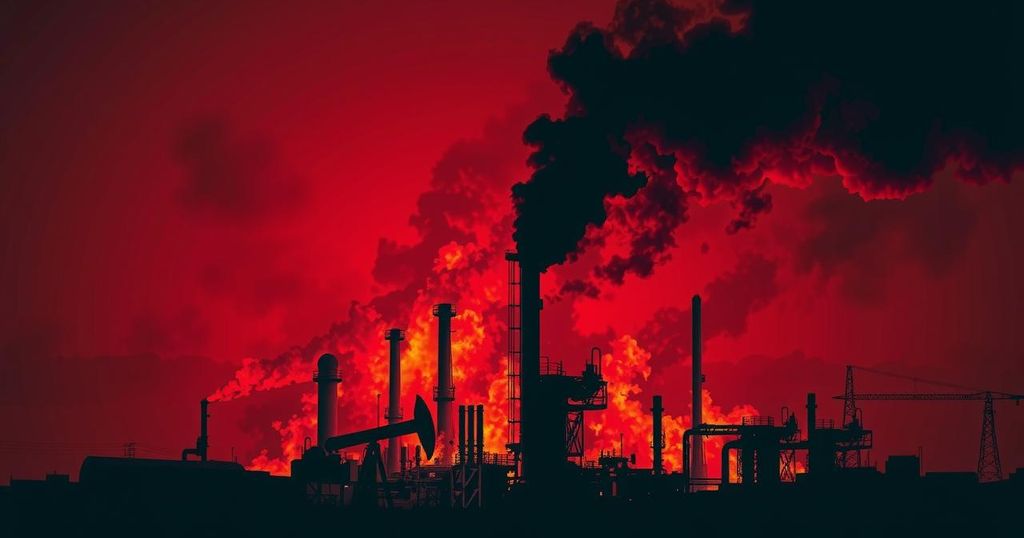Fighting in Sudan’s civil war has ignited the nation’s largest oil refinery, producing thick smoke over the capital. Claims of control over the refinery are contested by both the Sudanese military and the RSF. As violence escalates, the international community is increasingly alarmed about humanitarian impacts, especially on fuel supplies that could affect millions. This conflict underscores a deepening crisis rooted in Sudan’s tumultuous political history.
Recent fighting in Sudan’s civil war has resulted in a devastating fire that engulfed the nation’s largest oil refinery, located approximately 60 kilometers north of Khartoum. This assault has created significant smoke plumes visible from the capital, leading to health concerns regarding respiratory issues and cancer risks for nearby residents. Satellite imagery confirms extensive damage to the facility, which is capable of processing 100,000 barrels of oil daily.
The refinery, jointly owned by the Sudanese government and the China National Petroleum Corporation, had previously been claimed by the Rapid Support Force (RSF) since April 2023. In a recent escalation, Sudan’s military forces under General Abdel-Fattah Burhan asserted they captured the refinery, viewing it as a strategic victory in their ongoing conflict with the RSF. However, the RSF alleges that the military bombed the facility using aircraft, though no evidence was presented to substantiate either claim.
International efforts to mediate the conflict have largely proven ineffective, with accusations of genocide against the RSF adding diplomatic pressure. The United Nations Secretary-General António Guterres has expressed concern regarding the violent uptick and the implications of the refinery’s destruction on regional stability and the economies of both Sudan and South Sudan. The loss of this refinery would lead to increased reliance on fuel imports for Sudan, exacerbating the humanitarian crisis already impacting millions.
The civil war, which began in April 2023, has already led to significant loss of life and widespread displacement. The conflict has roots in Sudan’s recent political history, including the fall of long-time dictator Omar al-Bashir and subsequent military coups. As the RSF and Sudanese forces continue their conflict, the stability of the region and the well-being of its citizens remain precariously threatened.
Sudan’s civil war has roots tracing back to political unrest after Omar al-Bashir’s ousting in 2019. His removal paved the way for a democratic transition, which was undermined by a military coup in 2021 spearheaded by General Burhan and RSF leader General Dagalo. The instability has sparked violent confrontations between the military and the RSF, culminating in widespread humanitarian crises and allegations of war crimes. The conflict disproportionately impacts civilians, particularly ethnic minorities, who face violence from armed militias allied with either faction.
The oil refinery fire in Sudan highlights the severe consequences of ongoing civil warfare, illustrating the broader humanitarian crisis. As international mediation struggles to yield peace, accusations of war crimes and the destruction of vital infrastructure like the al-Jaili refinery pose immense threats to regional stability. Without immediate intervention, the plight of the Sudanese populace is likely to worsen, with dire implications for their future.
Original Source: www.cnn.com






